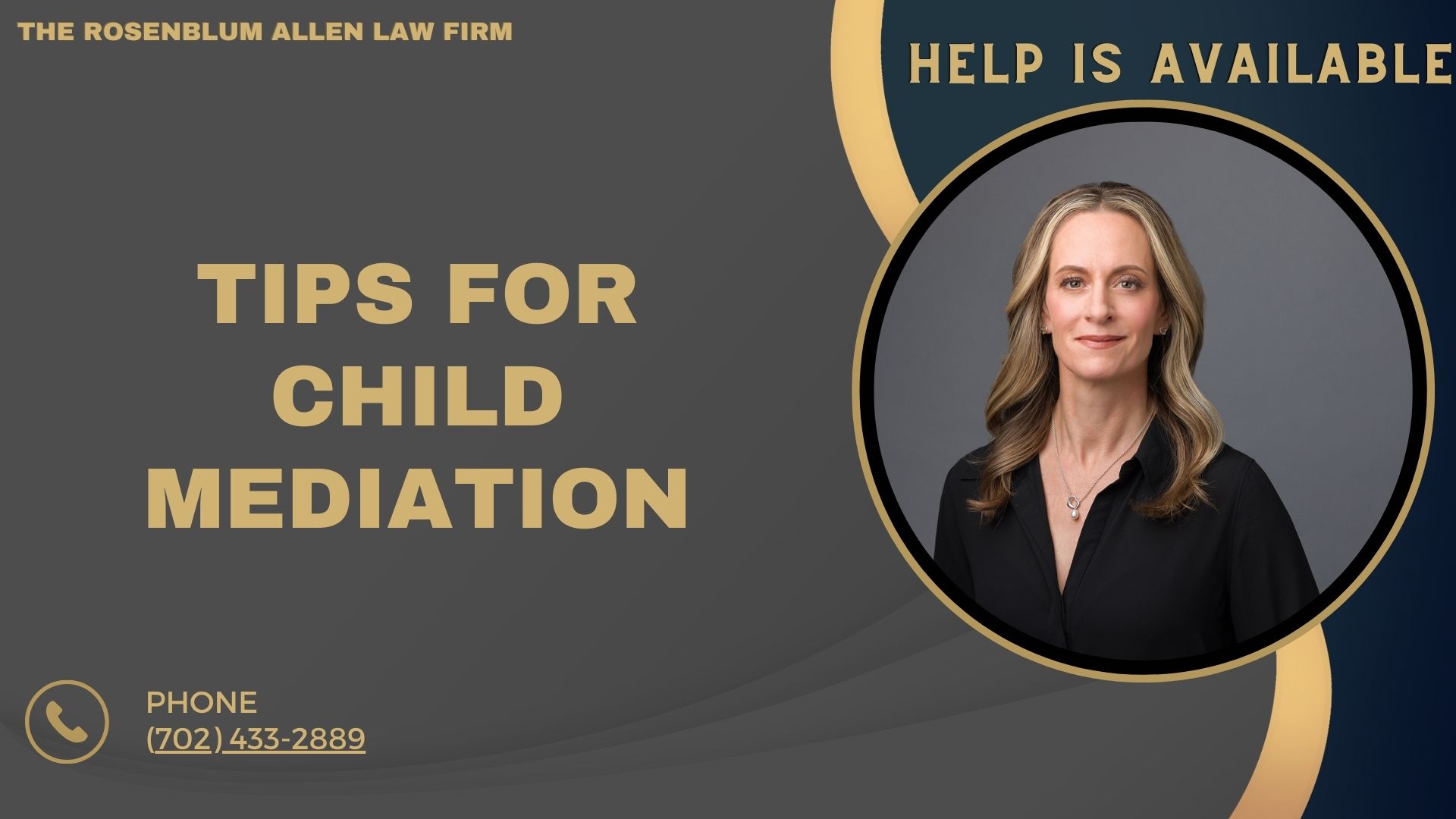Child custody battles can be emotionally draining and complex. But there’s a better way. Enter child custody mediation – a process that can help parents find common ground and put their children first.

What is Child Custody Mediation?
Imagine a calm, neutral space where you and your ex can work things out. That’s what child custody mediation offers. It’s a chance to decide about your kids without the stress of a courtroom.
Definition and Purpose
Child custody mediation is a process in which parents work with a neutral third party—the mediator—to make decisions about their children’s care and living arrangements. The mediator doesn’t take sides or make decisions. Instead, they help parents communicate and find solutions that work for everyone.
The main goal? To create a parenting plan that puts the kids’ needs first. It’s about finding a way forward for the whole family, even if you’re no longer together.
Types of Child Custody Mediation
There are two main types of child custody mediation:
- Court-ordered mediation: Sometimes, a judge might require you to try mediation before trial. It’s a way to see if you can work things out without a court decision.
- Voluntary mediation: This is when parents choose to mediate on their own. You may have heard good things about mediation, or you want to avoid the stress of court. Whatever the reason, voluntary mediation can be a great option.

Benefits of Child Custody Mediation
Mediation isn’t just about avoiding court. It has many benefits that make life easier for you and your kids.
Reduced Conflict
Let’s face it – divorce and separation can be challenging. But mediation can help take some of the heat out of the situation. Here’s how:
- Creating a cooperative environment: The mediator sets the tone, encouraging respectful communication. You might be surprised at how much easier it is to talk things through in this setting.
- Focusing on the child’s best interests: The mediator keeps bringing the conversation back to what’s best for the kids. This shared goal can help you and your ex find common ground.
Empowerment of Parents
One of the best things about mediation? It puts you in the driver’s seat. Here’s what that means:
- Control over decision-making: You and your ex know your kids best. Mediation lets you make the choices that will work for your family.
- Customized solutions: Every family is unique. In mediation, you can create a plan that fits your situation rather than a one-size-fits-all court order.
Remember, mediation is about working together to find solutions. It’s not always easy, but the results are worth it. You’ve got this!

The Mediation Process
So, you’ve decided to give mediation a try. Great choice! But what exactly can you expect? Let’s walk through the process step by step.
Preparation
Just like you wouldn’t attend a job interview unprepared, you should only walk into mediation if you do homework. Here’s what you need to do:
- Gather necessary documents: School records, medical information, and your current schedule. Having these on hand can make discussions much smoother.
- Identify critical issues: What matters most to you? It could be having the kids on weekends or ensuring they stay in their current school. Knowing your priorities helps you focus during mediation.
Pro tip: Write down your thoughts beforehand. Getting flustered is easy, but having notes can keep you on track.
During Mediation
Now, it’s showtime. But don’t worry – mediation isn’t about “winning” or “losing.” It’s about finding solutions together.
Role of the Mediator
Think of the mediator as a friendly traffic cop. They’re there to:
- Keep the conversation flowing.
- Make sure everyone gets heard.
- Help you understand each other’s perspectives.
- Guide you towards agreement.
Communication techniques
Good communication is critical. Here are some tips:
- Use “I” statements: “I feel worried when…” instead of “You always…”
- Listen actively: Try to understand, not just respond.
- Take breaks if things get heated: It’s okay to pause and regroup
Reaching an Agreement
This is what you’ve been working towards. When you’re close to an agreement:
- Drafting a parenting plan: This is your roadmap for co-parenting. It covers things like:
- Where will the kids live
- How you’ll handle holidays
- How you’ll make big decisions
Finalizing the custody arrangement: Once you agree, the mediator will help you put it in writing. This becomes your official agreement.
Remember, it’s okay if you immediately have differing views on everything. Partial agreements are still in progress!

Key Issues Addressed in Child Custody Mediation
Now, let’s dive into the nitty-gritty. What exactly do you talk about in mediation?
Physical Custody
This is about where your kids will live. It’s not just about splitting days on a calendar – it’s about creating a stable, loving environment for your children.
Residence schedules
This could look like:
- Week-on, week-off
- 2-2-3 schedule (2 days with one parent, 2 with the other, then 3 with the first)
- Primary residence with one parent, regular visitation with the other
The proper schedule depends on your family’s unique situation.
Holiday and vacation arrangements
Don’t forget about special times:
- How will you split school breaks?
- What about birthdays and religious holidays?
- How much notice do you need to give for vacation plans?
Tip: Consider alternating years for big holidays to keep things fair.
Legal Custody
This isn’t about where your kids sleep – it’s about who makes the big decisions in their lives.
Decision-making responsibilities
You’ll need to decide how you’ll handle choices about:
- Education
- Healthcare
- Religious upbringing
- Extracurricular activities
You might share these decisions, or one parent might lead in certain areas.
Education and healthcare choices
These are huge parts of your kids’ lives. Consider:
- Which school district will they be in?
- How will you handle medical emergencies?
- What about therapy or counseling if needed?
Visitation Rights
Even if one parent has primary custody, the other usually has visitation rights. This ensures that both parents stay involved in the children’s lives.
Regular visitation schedules
This might include:
- Weekends
- Weekday dinners
- Video calls for long-distance parents
Special considerations for non-custodial parents
Think about:
- How to handle transportation for visits
- Ways to stay involved in school and activities
- How to maintain strong bonds despite less time together
Remember, the goal is to involve both parents in your children’s lives. It might take some creativity, but it’s worth it for your kids.

Challenges and Solutions in Child Custody Mediation
Mediation is only sometimes a walk in the park. But don’t worry! Even if you hit some bumps in the road, there are ways to smooth things out.
Common Obstacles
Sometimes, mediation can feel like trying to solve a Rubik’s cube blindfolded. Here are some tricky situations you might encounter:
High-conflict situations
You and your ex can’t be in the same room without World War III breaking out. It happens. High-conflict situations can stem from:
- Unresolved anger or hurt
- Different parenting styles
- New partners in the picture
Unresolved emotional issues
Divorce is emotional. Period. You might be dealing with:
- Feelings of betrayal or abandonment
- Grief over the end of the relationship
- Fear about the future
These feelings are valid but can make mediation challenging if not addressed.
Strategies for Success
Don’t throw in the towel just yet! Here are some strategies to help you navigate these choppy waters:
Focusing on the child’s needs
Remember why you’re here – for your kids. Try this:
- Before each session, look at a photo of your children
- Ask yourself, “What would make them proud?”
- Frame discussions in terms of what’s best for the kids
Utilizing support services
You don’t have to do this alone. Consider:
- Individual therapy to process your emotions
- Co-parenting classes to learn new skills
- Bringing a support person to mediation (if allowed)
Remember, asking for help isn’t a sign of weakness. It’s a sign that you’re committed to making this work.

After Mediation
Congratulations! You’ve made it through mediation. But what happens next?
Implementing the Agreement
Now comes the part where the rubber meets the road. It’s time to implement your agreement.
Transitioning to the new arrangement
This can be a significant change for everyone. Here’s how to make it smoother:
- Explain the new schedule to your kids in age-appropriate terms
- Be patient – it might take time for everyone to adjust
- Keep communication open with your co-parent
Monitoring and adjusting as needed
Your agreement is flexible. You might need to tweak things as your kids grow and circumstances change. Keep an eye out for:
- Changes in your kids’ needs or schedules
- New job situations that affect availability
- Any parts of the agreement that aren’t working well
Feel free to return to mediation if you need to make changes. It’s all part of the process!
Legal Considerations
You’ve done the hard work of reaching an agreement. Now, let’s make sure it’s official.
Court approval of mediated agreements
In most cases, you’ll need to get your agreement approved by a judge. This usually involves:
- Submitting your agreement to the court
- Attending a brief hearing (sometimes this can be waived)
- Getting the judge’s signature
Don’t worry – if you’ve been thorough in mediation, this is often just a formality.
Enforceability of mediated settlements
Once the court approves, your mediated agreement is as binding as any other court order. This means:
- Both parents are legally required to follow it
- If one parent doesn’t comply, the other can seek enforcement through the court
But here’s hoping it doesn’t come to that. The beauty of mediation is that you’ve created this plan together, so you’re more likely to stick to it.

Breaking It All Down
As you practice working together through mediation, you build skills that will serve your family for years. This can lead to:
- Better communication between parents
- More flexibility in handling future challenges
- A positive example of problem-solving for your kids
Remember, every step you take towards peaceful co-parenting is a gift to your children. It’s not always easy, but it’s always worth it. You’ve got this!

Frequently Asked Questions
How long does the mediation process typically take?
The duration of child custody mediation can vary depending on the case’s complexity and both parties’ willingness to cooperate. Generally, it can take anywhere from a few weeks to several months. Some cases may be resolved in as little as 3 months, while others might take longer if parents need more time to reach an agreement.Lorem ipsum dolor sit amet, consectetur adipiscing elit. Ut elit tellus, luctus nec ullamcorper mattis, pulvinar dapibus leo.
What happens if we can't reach an agreement through mediation?
If you’re unable to reach an agreement through mediation, you may need to proceed with litigation. In this case, one parent must file a custody petition, and a judge will make decisions based on the child’s best interests and state law.
Can I bring my lawyer to the mediation sessions?
While it’s not always necessary, you can typically bring your lawyer to mediation sessions if you feel more comfortable doing so. However, it’s important to remember that the mediator is a neutral third party, not an advocate for either parent.
How much does child custody mediation cost?
The cost of mediation can vary widely depending on factors such as the mediator’s experience, the complexity of your case, and your location. Generally, mediation is less expensive than going to court. Some courts offer free or low-cost mediation services, while private mediators may charge by the hour or session.
What if my ex-partner refuses to participate in mediation?
If your ex-partner refuses to participate in mediation, you may need to pursue other options, such as collaborative law or traditional litigation. Sometimes, a court may order mandatory mediation before allowing a case to proceed to trial.
Can grandparents or other family members participate in the mediation process?
While mediation typically focuses on the parents, in some cases, grandparents or other family members may be included if both parents agree and it’s deemed beneficial for the child’s well-being.
Is the mediator's decision binding?
The mediator doesn’t make decisions. Instead, they facilitate discussions between parents to help them reach their agreement. Any agreement reached during mediation becomes binding only after it’s approved by a court and entered as an order.
What if circumstances change after we've reached a mediated agreement?c
If there’s a significant change in circumstances after your agreement is finalized, you can typically modify the custody arrangement. This can often be done through mediation or jointly petitioning the court for a modification.
How do we choose a mediator?
You can choose a mediator by researching local professionals, asking for recommendations from attorneys or friends, or using services provided by your local court. Look for mediators with experience in child custody cases and check their credentials and training.
What if there's a history of domestic violence in our relationship?
If there’s a history of domestic violence, mediation may not be appropriate. Many jurisdictions have special provisions for such cases, and you should consult with a lawyer or domestic violence advocate to determine the best course of action.

Additional Resources For You
- Las Vegas Custody Attorney: Comprehensive information about child custody representation in Las Vegas.
- Fathers Rights: A guide focusing on the rights of fathers in custody cases.
- Supervised Visitation: Details about supervised visitation arrangements and procedures.
- Changing Custody Agreement: Information on modifying existing custody agreements.
- Grandparents Rights Nevada: Explains the rights of grandparents in Nevada custody cases.
- Long Distance Co-Parenting: Tips and strategies for managing co-parenting from a distance.
- How a Mother Can Lose a Custody Battle: Important factors that could affect a mother’s custody case.
- Custody Battle Tips for Nevadans: Strategies specific to Nevada residents facing custody disputes.
- What Not To Say In Child Custody Mediation: Guidance on appropriate communication during mediation.
- How Much is a Custody Lawyer: Information about the costs associated with hiring a custody attorney.
- Types of Custody in Las Vegas: An overview of different custody arrangements in Las Vegas.
- Nevada Child Custody Laws: A comprehensive look at child custody laws specific to Nevada.

Offsite Resources For You
- American Bar Association Family Law Section: Offers resources on family law topics, including child custody and mediation. https://www.americanbar.org/groups/family_law/
- DivorceCare: Provides support groups and resources for those going through divorce or separation. https://www.divorcecare.org
- OurFamilyWizard: An app designed to help co-parents manage shared parenting responsibilities. https://www.ourfamilywizard.com/
- Up to Parents: Offers free resources to help divorcing parents focus on their children’s needs. https://www.uptoparents.org/
- Rainbows: Provides resources for children coping with divorce or separation. https://rainbows.org/
- Hello Divorce: Offers various resources and tools for navigating divorce, including co-parenting plans. https://hellodivorce.com/
- FamilyKind: Provides education and support services for adults and children experiencing separation or divorce. https://familykind.org/

What's Next?
Dear Reader,
If you’re ready to take the next step in your child custody case, I invite you to reach out to us. Every situation is unique, and we’re here to provide personalized guidance tailored to your specific circumstances. Please don’t hesitate to call me and my team at (702) 433-2889.
We’re ready to listen to your story, answer your questions, and help you move forward with your case. Remember, taking that first step can be the hardest part. But you don’t have to face this alone. We’re here to support you throughout this process.
I look forward to the opportunity to assist you.
Warm regards,
Molly Rosenblum Allen, Esq.



